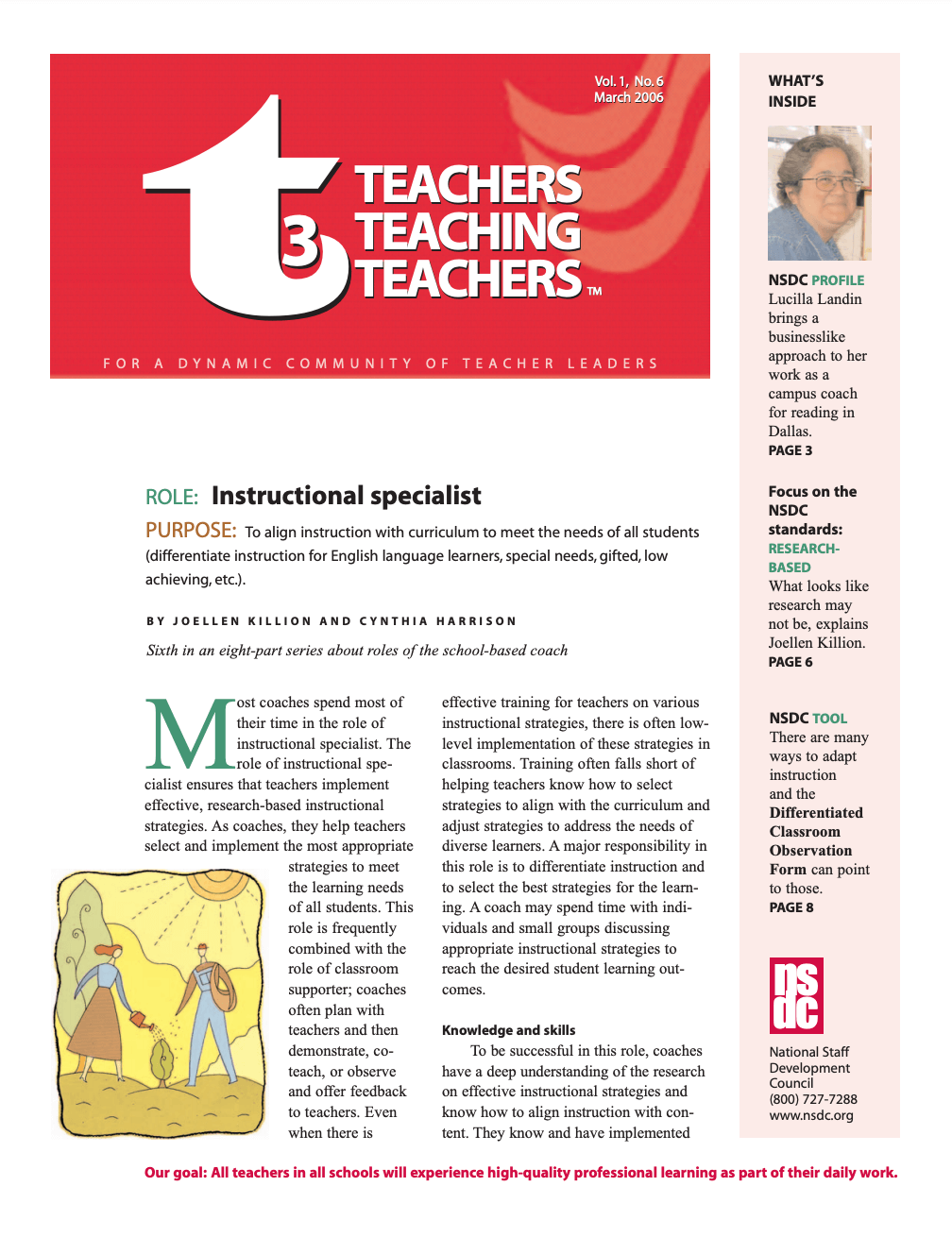
Teachers Teaching Teachers, March 2006, Vol. 1, No. 6

Role: Instructional specialist
How fitting that most coaches spend the majority of their time in the role of the instructional specialist since it is in this role that student learning is most directly influenced. As instructional specialists, coaches focus on instructional strategies, share information about differentiating instruction to meet the needs of all students, and demonstrate or observe classroom lessons. Coaches need a solid understanding of research-based practices and standards-based planning in order to match strategies and desired student learning outcomes.
Learn how being an effective teacher is essential in this role and examine the challenges of the instructional specialist in the sixth in an eight-part series about roles of the school-based coach.
By Joellen Killion , Cynthia Harrison
NSDC profile: Lucilla Landin--Lessons of business apply to work with teachers
Lucilla Landin is a reading coach for the Dallas Independent School District, working in an elementary school to support the Reading First program. While every K-3 teacher in Dallas is required to complete a certain amount of professional development in literacy skills, coaches such as Landin help to ensure effective implementation of the program.Landin hasn't always been an educator; she came to teaching from the worlds of business and social work. She has discovered that, as in the world of business, teachers now need to plan with the goal in mind.
Read how the reading coaches and teachers work together to raise student reading levels.
By Joan Richardson
Focus on the NSDC standards: Leaders help teachers to define research
More and more, teachers are hearing the importance of using "research-based" strategies. How are they supposed to know what is research-based and what isn't?Teacher leaders can help. This month, Joellen Killiion provides teacher leaders with an overview of what is -- and is not -- meant by scientifically based research and how different types of research can be useful in shaping classroom practices.
By Joellen Killion
NSDC tool: Differentiated classroom observation form
This observation tool is designed for coaches to help teachers understand the many different ways they can adapt instruction to meet students' unique differences.The tool covers items in five broad categories: physical environment, teacher behaviors, student engagement, materials and resources, and instructional strategies.

